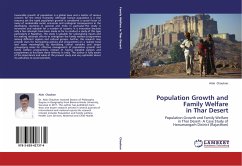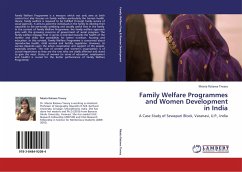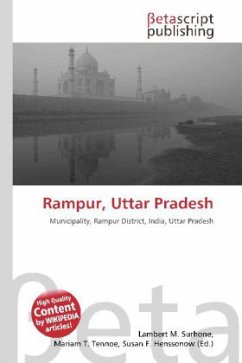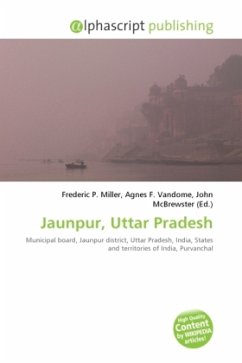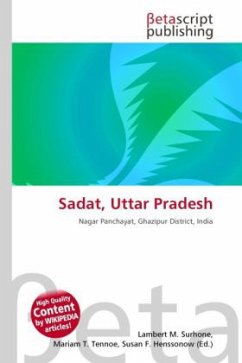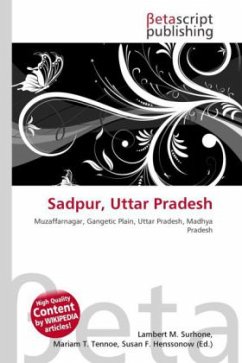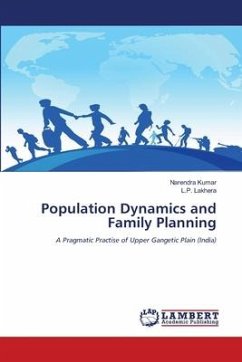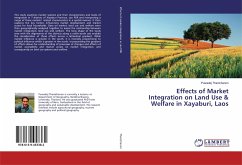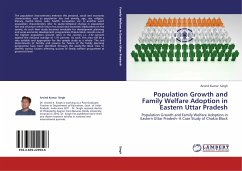
Population Growth and Family Welfare Adoption in Eastern Uttar Pradesh
Population Growth and Family Welfare Adoption in Eastern Uttar Pradesh- A Case Study of Chakia Block
Versandkostenfrei!
Versandfertig in 6-10 Tagen
51,99 €
inkl. MwSt.

PAYBACK Punkte
26 °P sammeln!
The population characteristics embrace the personal, social and economic characteristics such as population size and density, age, sex, religion, literacy, marital status, caste, health, occupation, etc. In another word population characteristics refer to spatio-temporal change in population size and structure which inturn has social and economic implications on the society. As such their study becomes inevitable for development planning and socio-economic development programmes.Chakia block records one of the highest population growth rates in the country i.e. 2.52 percent against the nationa...
The population characteristics embrace the personal, social and economic characteristics such as population size and density, age, sex, religion, literacy, marital status, caste, health, occupation, etc. In another word population characteristics refer to spatio-temporal change in population size and structure which inturn has social and economic implications on the society. As such their study becomes inevitable for development planning and socio-economic development programmes.Chakia block records one of the highest population growth rates in the country i.e. 2.52 percent against the national average of 1.91 percent. As such, this area will be a very suitable and appropriate for the sample study as a whole. The real determinants of fertility and reasons for failure of the family planning programme have been identified through the study.The Book tries to identify various factors affecting success of family welfare programme at grass-root level.



